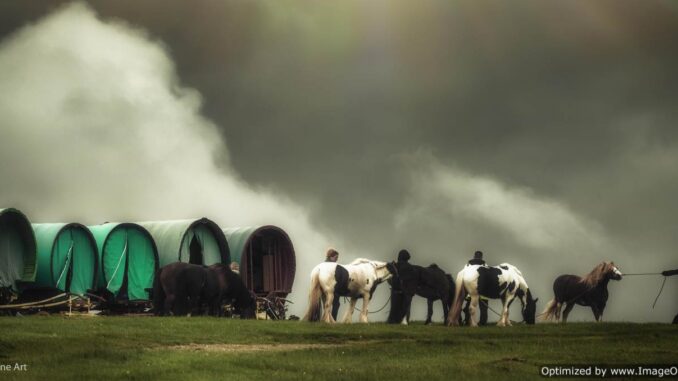
How are they defined? And why do we need to know?
Text: Bill Lloyd. Pictures: Brian Morgan
Click here to download PDF document.
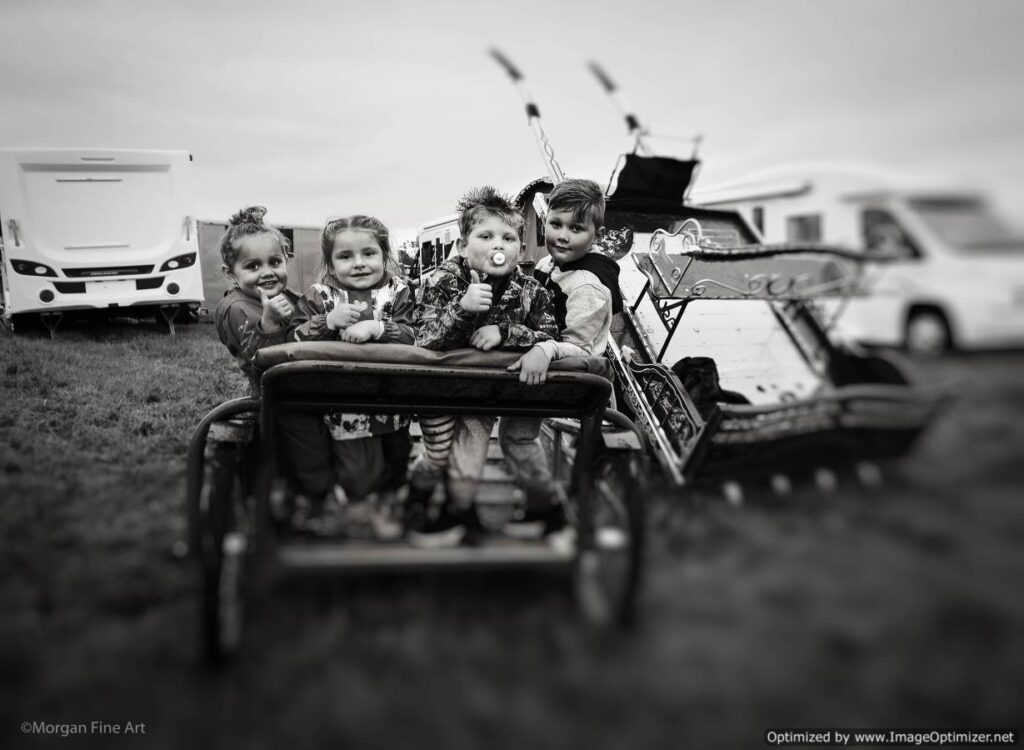
There are so many twists and turns in the road which leads to a working definition of the words ‘Gypsy’ and ‘Traveller’, that I gave up trying years ago. For a start it seemed like a pointless exercise. Gypsies and Travellers know exactly who they are, and they know who they are not. The people who most need a formal definition are the legislators, the police, the courts, the local Councils and maybe social workers and educators seeking to help a marginalised group, and they can turn to civil servants and academics and lawyers to provide a form of words which suits their purpose, so it made no difference to me.
After managing without my own definition for 30 years, in 2020 there came the Covid-19 pandemic and with it came an increase in community tension among some residents of the town of Appleby-in-Westmorland, many of whom preferred not to see an influx of thousands of visitors – whom they believed to be Gypsies and Travellers, watched by even more thousands of regular tourists – for the annual Appleby Horse Fair. There were calls to exclude Gypsies and Travellers from the town and place them under curfew. My suggestions that not all the people who come to the Fair are Gypsies and not all Gypsies have Covid were met with scorn and derision and my attempts at educating people with the official definitions made no difference – if anything they made the tension worse, because I was accused of ‘playing the race card.’ Then came the Police, Crime, Sentencing and Courts Bill 2021, (PCSC) by which the Parliament in Westminster would make criminals of all nomads – Gypsies, Travellers and any other van and caravan dwellers, without regard to ethnicity or identity.
The proposed PCSC Bill is a catch-all law which will apply to decent, law-abiding people as well as anti-social nuisances. While it is undeniable that some unauthorised encampments can produce serious anti- social behaviour, it is not usually necessary to use a sledgehammer to crack a nut. Under the terms of the Bill, anyone who parks up on any land, including roadside verges and common land, with the intention of living there for any length of time without the explicit consent of the owner, and who refuses to leave immediately, would commit a criminal offence. No evidence of wrongdoing will be required, and the protection afforded to Gypsies and Travellers under the Equality Act will not apply.
The PCSC Bill represents a real threat to the continued existence of nomadic culture. Although many Romany Gypsies and Travellers are now settled in houses, many still travel full-time, and there are many more who live on the road who are not ethnic Gypsies and Travellers but who have taken to the road because they are homeless or seeking a low-impact lifestyle for ideological reasons. In the last 50 years, most of the traditional stopping places on back- roads, country lanes, lay-bys, waste ground and common land, used for hundreds and possibly thousands of years, have been closed off and there are now insufficient authorised sites to accommodate the nomadic population, who have no choice but to stay on verges and waste ground wherever they can find it. Many of the remaining sites are unauthorised, but they are tolerated because their impact on the local community is considered minimal, or at least not worth the time and expense of evicting them. In a climate of fear of Covid, the rising anti-social behaviour across society, and increasing hostility to all Gypsies and Travellers brought about by unacceptable behaviour of a few and the scurrilous sensationalism of the mass media, that tolerance may now be changing, and the PCSC Bill represents a key mechanism of change. Any local resident who nurses a dislike of nomads will now be able to get them moved on unless the landowner agrees for them to stay. Landowners can be cajoled or scared into action by a threat of liability or court action, as was shown by the case of Mallerstang Common (Watter Yat) in 2021.[1] In the case of Watter Yat, the Parish Council had been happy for them to stay on the Common, but they dared not risk a court action against the landowner. Following the closure of the Common the Travellers moved on to the local Rugby Club causing a furore, in which community tension increased.[2] As more and more stopping places are closed to them, where are these nomads to go? Everybody has to be somewhere.
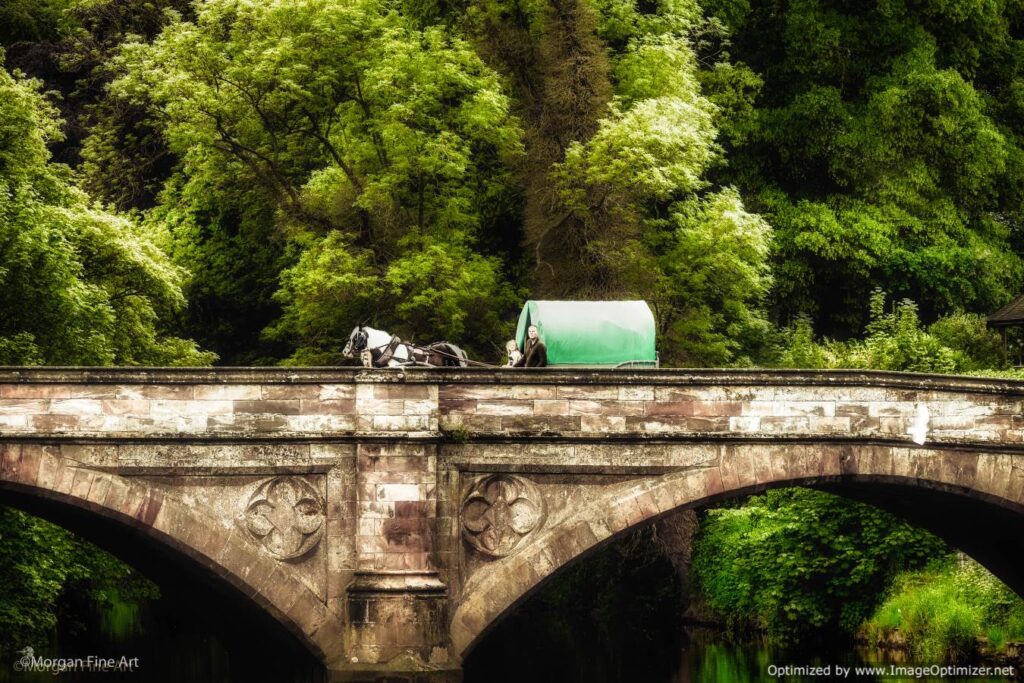
Gypsies and Travellers may have protected status as ethnic groups under the law, in recognition of their vulnerable status and the historic prejudice and persecution they have suffered. The definition of a Gypsy or Traveller has suddenly become an important question. Who is a Gypsy and who is not? Is a ‘new’ Traveller, who moves around for employment, entitled to stay on the roadside or not? Who is entitled to protection under the Equality Act, and who is not? What effect will the new law have on that protected culture if all their stopping places are closed? The proposed legislation against unauthorised encampments will criminalise all nomads – good or bad, Gypsy or non-Gypsy, and if some MPs get their way, the new law would make nomads disappear completely,[3] but of course they cannot disappear. The Home Office is fully aware that powers already exist to evict unauthorised encampments, so eradication is not the primary intention of the proposed new law, which originated as a manifesto commitment to win popular votes. The new legislation will win votes because the popular definition of Gypsies and Travellers can be summarised as ’dirty thieving outlaws who live by the side of the road and behave badly’. That popular definition is peddled relentlessly by unscrupulous editors, yet it is false – prejudiced, misleading, and plain wrong.
When the law is invoked to criminalise an activity which has been practised for thousands of years, correcting this false but popular definition suddenly becomes vitally important. Law is all about words. Most people do not want to live near people they think are ‘dirty thieving outlaws who live by the side of the road’, but that is not at all the same as ‘Gypsies and Travellers’. It is suddenly all about definition, all about words. Suddenly the rights of Gypsies and Travellers to exist – hard won over the last eighty years since Hitler’s Porajmos and now protected as the rights of an ethnic group – are once again under direct threat by the criminalisation of their nomadic way of life. When Adolf Hitler tried it in the 1930s, he won the populist vote by pandering to stereotype and prejudice. Once he was in power, the consequence was the death of between a quarter and half a million Gypsies in the gas chambers.
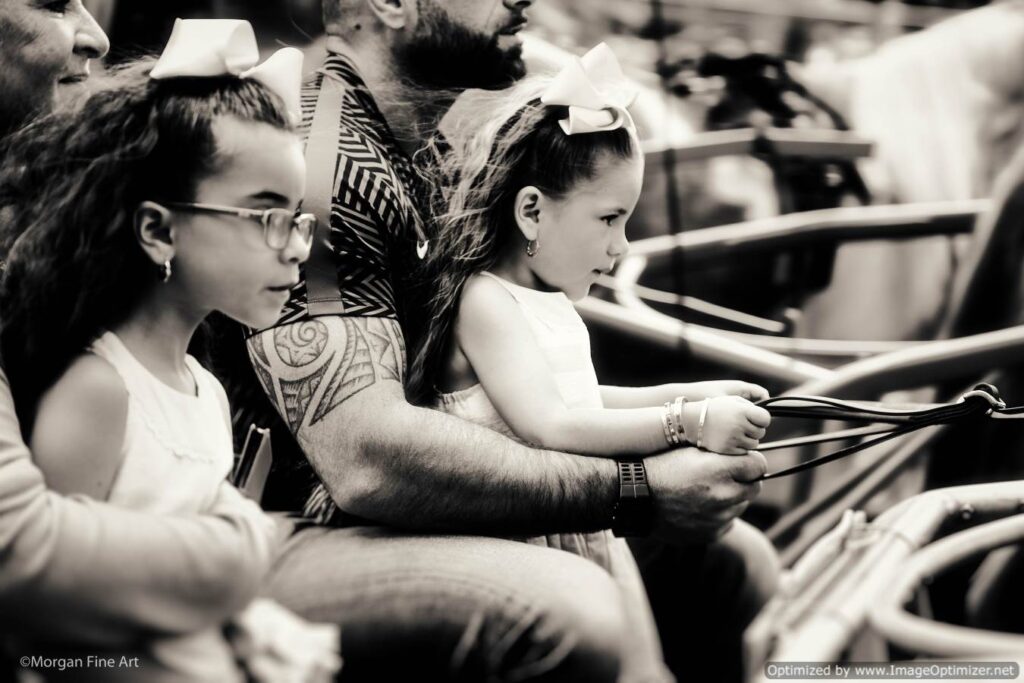
The supporters of the proposed new legislation maintain quite reasonably that the PCSC Bill does not mention ethnicity, so it does not discriminate against Gypsies or Travellers as an ethnic group. The draconian penalties will apply only to people whose encampments are ‘unauthorised’ so ‘good Gypsies’ will not be affected. That may be the reasonable intention, but the reality is different. It is an indisputable fact that not all Gypsies and Travellers are criminals, and not all criminals are Gypsies, but the popular perception sees the bad behaviour from rogues and scoundrels living on the roadside and then assumes that all nomads behave badly. It seems that the Home Office shares this false perception, and so the PCSC Bill imposes harsh penalties merely on suspicion that criminality is likely, with no evidence required.
The inevitable consequence will be that decent, law abiding Gypsies and Travellers will suffer harsh penalties simply because they are nomads. Confiscation and destruction of vehicles and caravans, fines and imprisonment with all the consequences of broken families, children taken into ‘care’, and the obligation on local Councils to rehouse those people made homeless, will now be applied to an ancient and proud culture, because there is nowhere for them to go. The popular ‘catch-all’ definition of Gypsies and Travellers, which assumes that they are all outlaws on the basis of suspicion alone, is clearly inadequate, and probably unenforceable and certainly unjustified. Nomadism is a key characteristic which has always been central to Gypsy and Traveller identity and is central to almost all the official definitions. False definition and mischaracterisation of nomads based on popular stereotypes of outlaws has suddenly become a vital matter to the survival of Gypsy and Traveller identity and culture. This article does not attempt to provide a usable definition, but to illustrate why we do not yet have one. Finding one may be impossible, but we can start by nailing the lie at the root of the popular definition.
Contrary to popular opinion, not all Gypsies are outlaws, and not all outlaws are Gypsies.
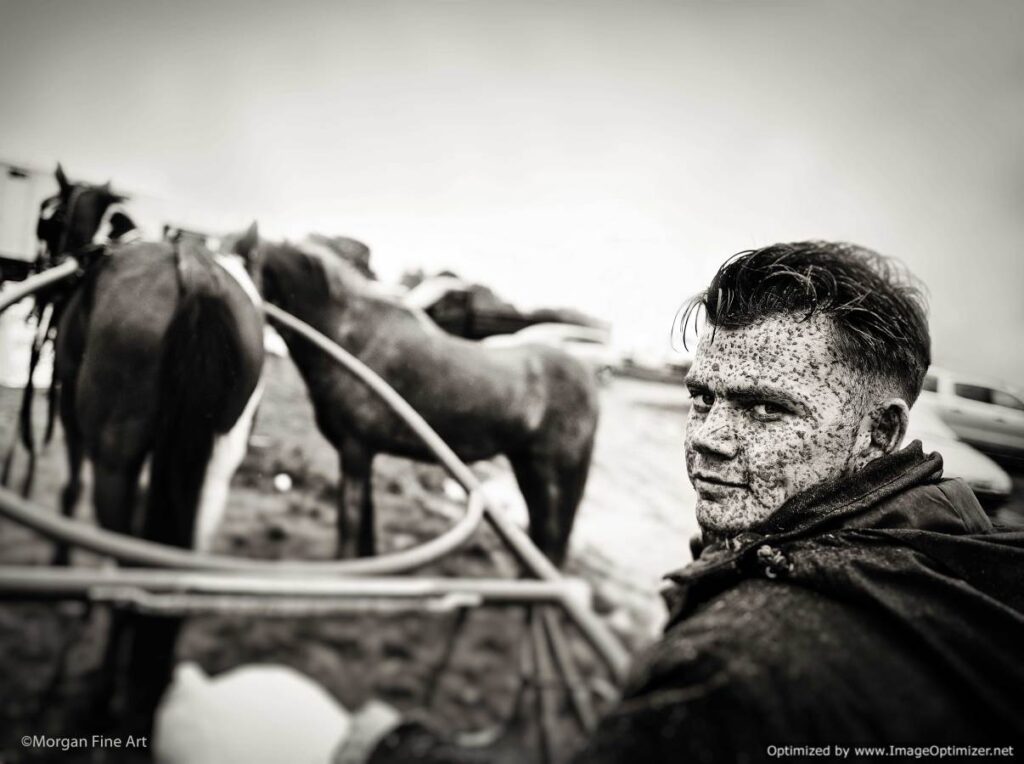
The first relevant legal definition of the word ‘Gypsy’ in the UK, set out in the 1968 Caravan Sites Act, stated that the term meant “persons of nomadic habit of life, whatever their race or origin, but not including members of an organised group of travelling show people or persons engaged in travelling circuses travelling together as such”.[29] That definition was adopted for planning purposes in 1977 and in May 1994, the Court of Appeal determined that Gypsy nomadism must have an economic purpose. To qualify as a Gypsy (or a Traveller, it being assumed at that time that they were to be treated as if they were the same) a person had to move between settled communities in order to provide a service. Traditionally that might be hawking or repairing pots and pans (tinkering) or more recently tree-cutting, laying tarmac or paving or landscaping. That ‘economic purpose’ definition still applies, one current (2021) official definition, being “Persons who wander or travel for the purpose of making or seeking their livelihood (not persons who move from place to place without any connection between their movements and their means of livelihood)”. This definition can include both “born” or ‘ethnic’ Gypsies and Travellers and “elective” Travellers such as New (Age) Travellers.
Several court cases have held that Gypsy status may be retained if a person can no longer travel due to age or infirmity, and under this revised definition, Gypsies and Travellers are ‘Persons of nomadic habit of life whatever their race or origin, including such persons who on grounds only of their own or their family’s or dependants’ educational or health needs or old age have ceased to travel temporarily, but excluding members of an organised group of travelling show people or circus people.”
So far, so good. According to that official definition, Gypsies and Travellers are simply economic nomads, regardless of their ethnicity. But ethnicity is real and ethnic groups cannot be dismissed so easily, particularly by the Courts. By a different official definition, Gypsies and Travellers are a racial group according to Section 9 of the Equality Act 2010, and so they are protected from discrimination (s13 and s15) and harassment (s26). They are legally recognised as an ethnic group protected from discrimination by the Race Relations Act (1976, amended 2000) and the Human Rights Act (1998). Government lawyers have acknowledged that multiple definitions may be applied in different circumstances. “Official insistence on ‘nomadism’ as a prerequisite for ‘gypsy’ status has blurred the understanding of ‘Gypsies’ as an ethnic group, creating a hierarchy of ‘deserving’ and ‘undeserving’ nomads, Romany Gypsies being perceived as a ‘respectable’ minority.” (1) One law protects the right to nomadism while another law criminalises it, and this fundamental anomaly is only the beginning of the difficulty, because the official definitions, and the statutory duty to provide stopping places, keep changing and they have been modified significantly since they were first adopted.
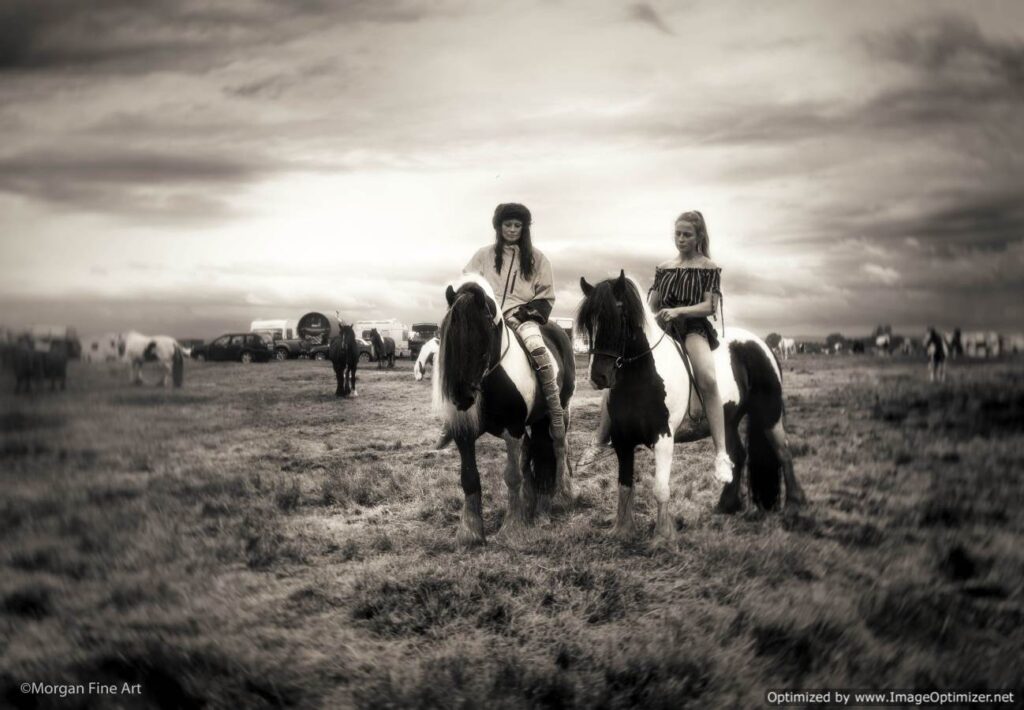
- 90% of traditional stopping places were closed between 1984 and 2004, and many more have been lost since then. The ability of Gypsies to maintain a wholly nomadic lifestyle has become increasingly difficult and less attractive, and most Gypsies now live on permanent sites.
- ‘Commitment’ to travelling rather than habit of travelling or ethnicity is now seen as the qualifying element of nomadism. The definition currently used by Shelter is typical:
“Gypsies and Travellers are people who are committed to a nomadic or travelling lifestyle and see travelling as an important part of their ethnic or cultural identity.” (3) - Nomadic culture has become detached from travelling and is seen as a matter of personal preference, shared with a like-minded community – “a way of looking at the world, a different way of perceiving things, a different attitude to accommodation, to work, to life in general.” (4 )
- Many ethnic Gypsies and Travellers undertake work which does not require them to adopt a nomadic lifestyle and the need to educate Gypsy children requires a settled base from which to travel at different times of year.
- Even people who believe themselves to be Gypsies or Travellers by blood and ethnicity might not fit the official definition based on nomadism, which was devised with very little consultation with the people concerned. Until the 21st century most Gypsies did not attend regular school, so did little in the way of reading and writing, and many did not engage with gorgios (non-Gypsies) at all if they could avoid it, except as a source of income. They were reluctant to engage in discussions about definition and identity for fear of saying the wrong thing and finding themselves the wrong side of the law.
- The inclusion of ‘New’ Travellers, who take to the road seeking an alternative lifestyle, in the official definition has caused some resentment among ethnic Gypsies and Travellers.They resist the inclusion of ‘New’ Travellers, (some of whom are known pejoratively by Gypsies as ‘slinks’) in the protected group, on the grounds of significant ethnic and cultural differences. The relationship between ‘traditional’ and ‘new’ Travellers has not always been easy. Their culture, religion, politics, and employment are very different from each other, and they tend not to share sites or live next to each other, (although there are exceptions) but there is no doubt that New Travellers have been at the forefront of activism in support of nomadic culture, and their culture is threatened by the PCSC Bill at least as much as the Romanichal and Irish. They certainly suffer the same prejudice and hostility, and they mostly get along with each other, but the New Travellers represent yet another strand of diversity in the official definition.
- Self-identification is not much help in fixing a definition. Due in part to the confusion of the words ‘Gypsy’ and ‘outlaw’, the international Romani Congress rejects the word ‘Gypsy’ due to its historical negative associations.
- An older generation were brought up to believe that they should never, ever admit to being a Gypsy because of the stigma it carried, and in the 20th Century, many Gypsies described themselves as ‘Travellers’ in order avoid that stigma, while some English Gypsies now embrace the word Gypsy with pride.
In spite of the tangle of words and their meaning, for Gypsies and Travellers themselves these problems of definition seldom arise until they encounter officialdom – courts of law, planning authorities, unauthorised encampments protocols, or racism and hate-crime. Most English Gypsies, (Romanichal) know exactly who they are and where they came from. First, they know they are not ‘gorgios’ (or ‘gaudjes’ or gadjes’.) They distinguish clearly between the four Romanichal tribes, which have some cultural similarities but are ethnically distinct – Rom, Sinti, Manouche and Kale. They make distinctions between the Scottish and Welsh gypsies, (who are Romanichal), and the Scottish and Irish Travellers, who are ethnically different from Romanichal and different from each other. Similarly, the Irish Travellers have a distinct and ancient culture with their own customs and traditions. They know that they are not Romanichal and the teenage children of Irish Travellers who have settled in England usually identify as ‘White British’ rather than Gypsy or even as Irish. Some Irish Travellers in England (who are possibly the majority of actual permanent nomads) retain their Irish accents and culture but identify as English Travellers, not Irish Travellers, because the Irish ethnicity attracts a second layer of stereotyping and discrimination.
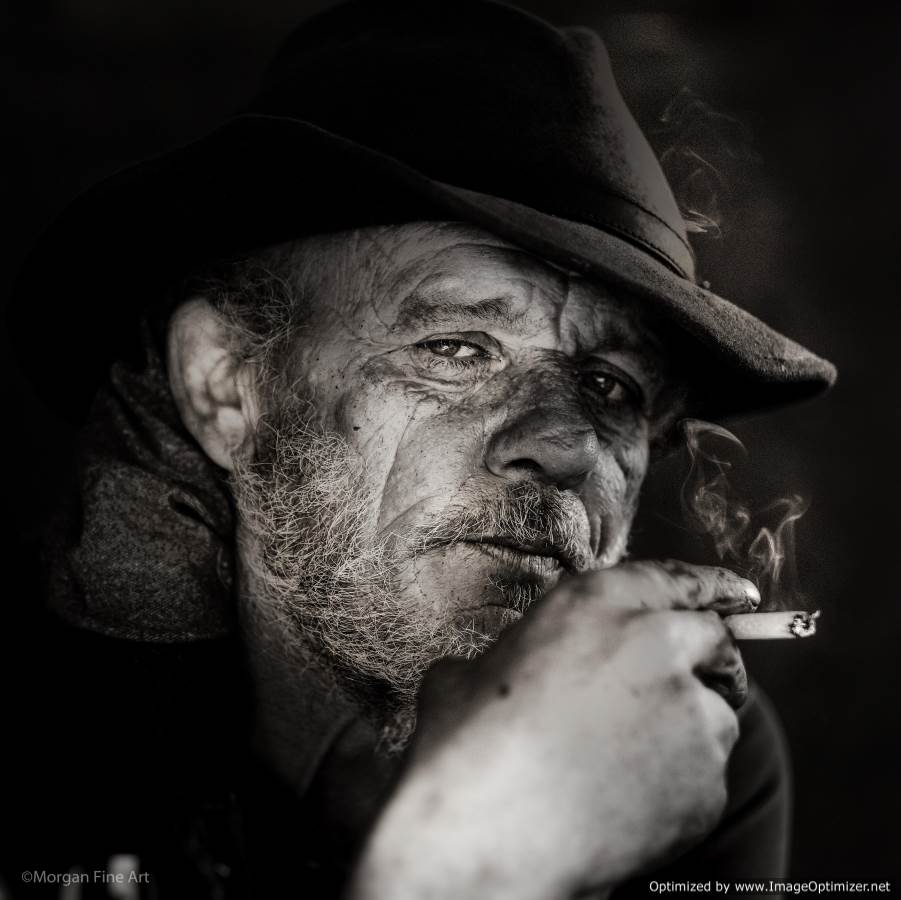
Older English Travellers might point out that Irish Travellers are not like them and so they now prefer to identify as Gypsies. I have met people who have become so attached to the romanticised notion and the lifestyle of being a Gypsy that they believe it themselves and expect the statutory protection against discrimination available to ethnic Gypsies. Any nomad might identify with the official definition of English Gypsies and Travellers whenever it suits them, in order to access services, camp sites or planning consents which they would otherwise be denied.
2 https://publications.parliament.uk/pa/cm200304/cmselect/cmodpm/633/63306.htm
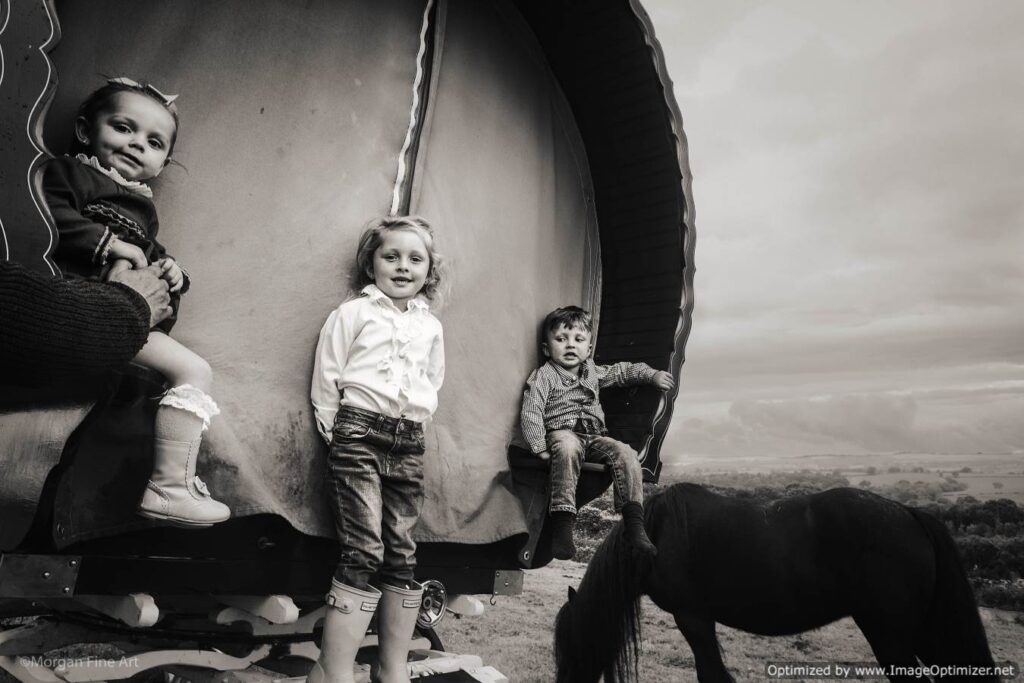
One consequence of this jumble of definitions is that any group might feel that their reputation has been tarnished by the actions of another group. For example, it is not unusual to hear Romanichal opinion blaming the bad behaviour of Irish Travellers for giving the Romanichal a bad reputation, just as in past times they would blame the Didicoy, (people who live like Gypsies but are not Romanichal) but it is impossible for the State or anyone else to prove or disprove such opinions unless the offenders are identified, charged, and convicted. And therein lies another great difficulty: one reason that criminals and outlaws of all ethnicities have taken to the road since the dawn of history is because it then becomes difficult for the law to identify them, catch them, and charge them.
Today, even when a lawbreaker is identified, confusion in popular opinion can remain even if there is no evidence of ethnicity. In this confusion it is convenient for settled people to blame ‘the Gypsies’ for bad behaviour, for the law-abiding Gypsies to blame the Irish Travellers, and for the law-abiding Irish Travellers to blame the criminal Travellers. Police have told me of several cases where criminal acts are committed by locals when Gypsies are in the area, assuming that they will get the blame, and it may be convenient for non-Gypsy or Traveller outlaws to claim Gypsy status in order to ‘play the race card’, which in turn brings the anti-racist legislation into disrepute. In the haze of smoke and mirrors it is wise not to rely on how people identify themselves, as the prevailing progressive orthodoxy suggests that anyone can ‘identify’ as anything they wish, and expect to be treated accordingly, so the answer might well change according to circumstances.
Although many of the traditionally nomadic groups identify as separate, and different from each other, they have much in common. They often share a preference for close knit extended families, strict gender roles, the love of horses and dogs, respect for boxers and bare-knuckle fighters, a culture of campfires and love of unaccompanied song and dance, a preference for living outside and a dislike of bricks and mortar. They have distinct languages of their own, not usually shared with outsiders, and their own elaborate wedding and funeral customs. Due to nomadism and a dislike of the progressive educational curriculum which they see as eroding their culture, they would often take their children out of secondary school, so literacy has not been a priority. Although many Gypsy and Traveller youngsters are now demanding an education, the distinct culture and genealogical knowledge of who they are and where they came from is still carried not in words on paper but in the memory of the elders and the oral tradition. This memory also carries strict codes of morality, fireside etiquette and taboos about cleanliness and drinking water. In that culture a piece of paper has no value. True value is held in a man or a woman’s word, or in their gold jewellery or coins, or their horses and dogs, their wagons and harness, and now in their trailers and their vehicles.
These historic traditions, preserved in oral culture, are the outward signs of the nomad’s own sense of themselves as different. For the Romanichal, their identity is their pride. They may recognise other non-Gypsy nomads as ‘Travellers’ or ‘didicoy’, or ‘pitmen’ or ‘slinks’, and often prefer to marry within the tribe, but marrying out is not uncommon. Even within their extended families, ethnic Gypsy and Traveller bloodlines are often complicated by intermarriage between ethnic groups, in and out of the different families over many generations.
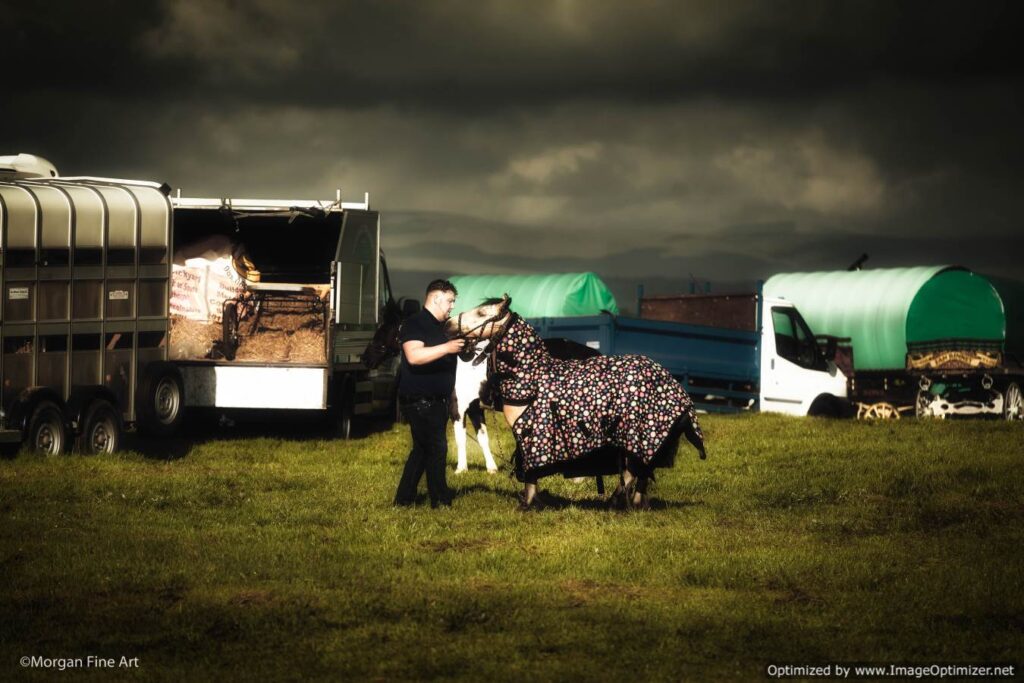
The official definition of ‘Gypsy and Traveller’ has attempted to be inclusive of all people with a similar nomadic lifestyle, but faced with insurmountable genealogical and cultural complexity, that definition had no alternative but to exclude ethnicity as a qualifying factor. The complexities of the definitions extend even further when they are applied to popular perceptions of lifestyle, criminality, and anti-social behaviour. Throughout history, criminals of any ethnicity and any culture who wished to escape detection and capture would take to the road and become ‘outlaws’ – that is, they were no longer entitled to the protection of the law. Outlaws were once fair game, and when they took to the road as fugitives, they had the same legal status as a wolf, and could be killed on sight. As a consequence, an outlaw could only live by criminality – any engagement with officialdom, any employment or even accepting welfare could lead to imprisonment or worse. Once they had taken to the road, the essential requirements for life as an outlaw inevitably shared some of characteristics of ethnic and cultural nomads – a fast horse, (later a fast car), a good dog, a quick wit, fighting skill, a distrust of authority, and a disinclination to hoard any kind of possession which might be an encumbrance, – were common to all nomadic groups. It is no wonder that the word ‘Gypsy’ and the word ‘outlaw’ have come to mean almost the same in the popular perception, because to the outsider, their lifestyles are so similar.
For an outlaw living on the road, with little money and miles away from a shop, as for a Gypsy or Traveller, the land could provide a basic living. Fruit picking or horse dealing, selling pegs or hawking could earn a subsistence wage, a good dog would bring in rabbits and hares or maybe a deer, and the horses could get a feed in a farmer’s hayfield overnight. This was of course stealing, but it was so close to poaching as made little difference to most poor farm-workers and countrymen, and for the agricultural poor, the poacher was often romanticised as a hero in song and story – unless of course he was in front of the magistrate, who was usually a farmer or landowner. The arrival of the Gypsies in the area was, and remains, a convenient opportunity for local criminals to get to work, knowing that the Gypsies would get the blame. Given the similarities in lifestyle with outlaws and poachers, it is not surprising that the ‘popular’ perception of Gypsies and Travellers came to be that they are ‘dirty thieving, anti-social outlaws who live by the side of the road and behave badly.’ Conversely, in this perception, anyone who lives by the road and behaves badly must be a Gypsy or Traveller.
These stereotypes persist, regardless of the fact that Gypsies and Travellers are not usually work shy, and most work in ordinary jobs, often labouring or manual work, and just trying to get by and raise their families like everyone else. Many Gypsies and Travellers are self-employed as scrap metal dealers, laying tarmac and paving, carpet sales, landscape and farm work, and horse dealing. Those who live on private authorized sites (56%) or on local authority sites and social housing (31%) pay council tax. It is undeniable that some Gypsies and Travellers are criminals, just like some gorgios, but in 56% of 237 Traveller sites surveyed, crime rates in the area were below the national average. [4] Criminologist Professor Yardley noted that poverty, deprivation, population composition, and population stability were ’driving the crime rate much more significantly than any particular ethnic group or their cultural practices’. [5]
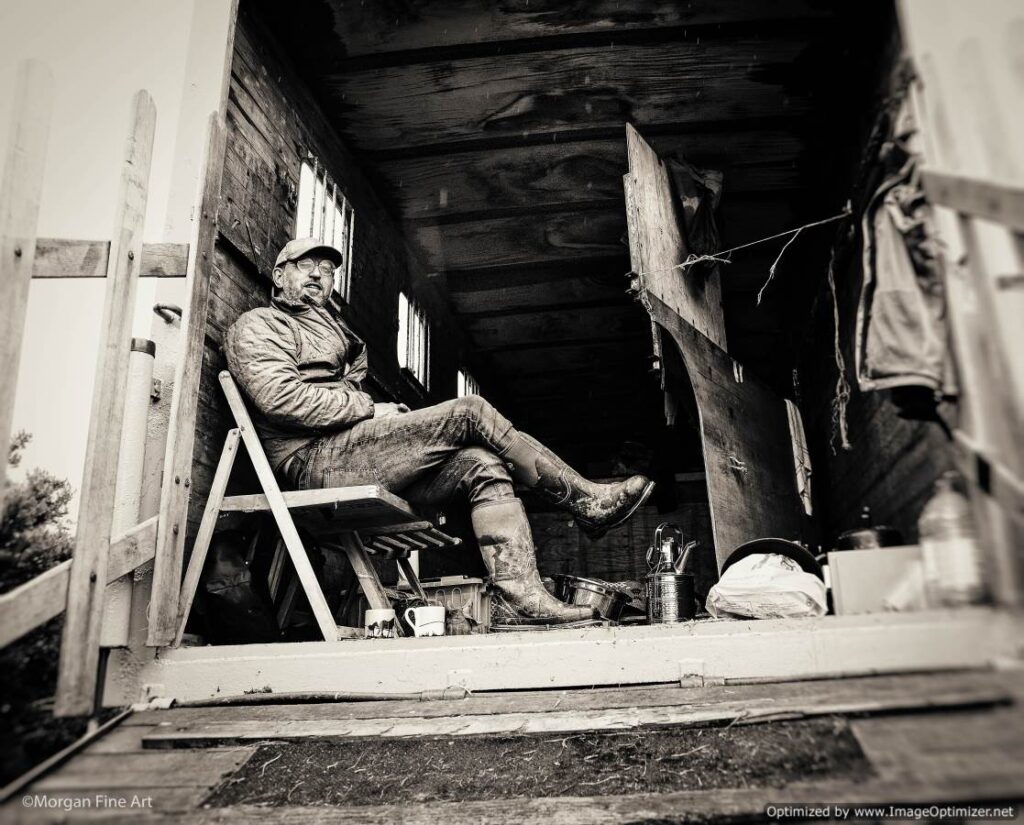
The popular perception that all Gypsies are outlaws is a gross distortion but there is no doubt that it is used to justify stereotyping of an entire ethnic group and an entire nomadic culture, based on the action of a few troublesome individuals or families, who may or may not be Gypsies or Travellers. The popular stereotype has the advantage of making a complex subject appear simple, and so is fostered and promoted by the popular press, who use it to sell newspapers and TV advertising, and as internet click-bait. For them the stereotype has become the default definition, but it is clearly inadequate as the basis for a draconian new law.
It is easily forgotten that the Gypsies have found themselves with nowhere to go due to the rapid technological and social change since the 1950s. Since arriving in Britain in the 16th century, Romany Gypsies were tolerated and often welcomed in rural communities where they specialised in providing essential (but infrequently required) goods and services. Renowned as peddlers, horse dealers, repairers of pots and pans (‘tinkers’ in Ireland or ‘tinklers’ in Scotland,) knife grinders, chimney-sweeps, makers of baskets and clothes pegs, fruit pickers, musicians, and clairvoyants, the Gypsies would arrive, do their job, and depart. Like the rest of society, some of the people providing these services were decent, honourable, and respectable, and some were not, but with the explosion of private cars, public transport, mass production and supermarkets, the demand for doorstep delivery of these specialised goods and services vanished, and with it the tolerance for the nomads who once provided them. Although many of the nomadic tradesmen have settled in houses and now travel only occasionally for employment, the travelling outlaws stayed on the road, and they are assumed to be Gypsies by people who do not know them.
The lack of a clear definition based on ethnicity and identity raises difficult questions about whether everyone who lives on the road for the purpose of employment is entitled to the special protection offered to Gypsies and Travellers. In an era of identity politics, hate speech and anti-nomad legislation, the words ‘protected status’ can be a provocation when discussing anti-social behaviour with outraged local residents who live near an unauthorised encampment. Since responsibility for enforcing anti-nomad legislation will fall to the Police, if they apply the current official definition of Gypsies and Travellers, there will be a clear conflict between the ‘protected status’ of nomadism, and the simultaneous criminalisation of nomadism. Which one will apply? Although ethnicity could not be used as part of the official definition because Gypsy and Traveller ethnicity is too complex and intermingled, the vagueness of that definition means that, whatever the intention, the new legislation will criminalise a whole protected group unless they move on. But where are they to go? Everybody has to be somewhere. The lawyers will be rubbing their hands as the interpretation of the new law is tested in court, but how many nomads who live in caravans can afford lawyers who understand the new law? The new powers will allow arrest and confiscation of vehicles almost immediately, and certainly before a lawyer has got out of bed and read their brief. By the time they have prepared a defence and obtained a stay from a judge, any sensible Gypsy or Traveller will have moved on, rather than risk immediate arrest and family catastrophe. But where will they go?
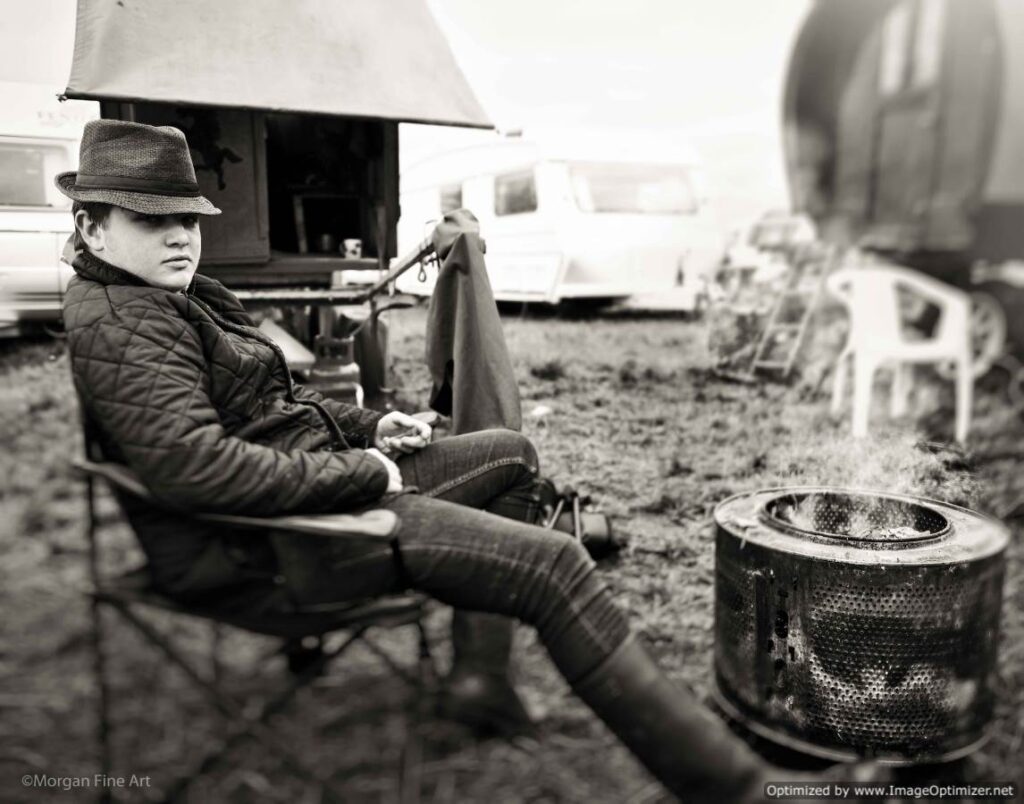
In my work of liaison between Gypsies and officialdom, I try to avoid the topic of ethnicity and any suggestions of ‘authentic’ or ‘real’ Gypsies, or the popular ‘hierarchy of acceptability’ between Gypsies and Travellers, in which English Gypsies are considered more ‘authentic’ and worthy than Irish Travellers, who, along with ‘New’ Travellers, have to overcome several extra layers of prejudice. There is currently some discussion locally and in Westminster, as well as round the campfires, about which ethnic group, if any, is more responsible for anti-social behaviour, but I prefer to focus on the behaviour and not the ethnicity. If people behave badly, their ethnicity or their ‘protected status’, and even their official definition, should not matter to anyone. Government spokesmen rely on this defence when discussing the new Bill, in which ethnicity is technically irrelevant because under the proposed legislation the mere ‘suspicion’ of bad behaviour will be sufficient for an arrest and detention. Evidence or history of actual bad behaviour is not a requirement, and ethnicity does not come into it – at least in theory. But at this point, the mischaracterisation of the popular definition suddenly becomes serious. The logic of enforcement is based on a faulty premise and it works like this. “I believe that all nomads are outlaws and criminals, therefore I can reasonably suspect that if these nomads stay here they will probably commit a criminal or anti-social act. That suspicion is enough to ask them to move on, and if they refuse it is enough to justify their arrest and confiscation of their home.“ Simply being a nomad will be enough to get you moved on or arrested, but only because prejudice and an inadequate definition obscure the facts, and justify the suspicion. No actual evidence of wrong-doing is needed.
Anti-social behaviour includes criminality of course, and it also includes leaving rubbish and toilet waste for other people to clear up, damage and vandalism to property, joyriding, intimidation, and obstruction. Particularly among the Romany Gypsy elders, the problems of unauthorised encampments and anti-social behavior are recognized, but they are in no doubt that the troublemakers are a small minority. People are entitled to be protected from the activities of criminals and outlaws and from bad behaviour, regardless of the ethnicity or the protected status of the offenders, but criminalising nomadic culture will not do it. Outlaws were once hanged on sight, but that did not make them all vanish. Outlaws, like death and taxes, are inevitable. People on the run, homeless people, or people broken by debt, or by a drug habit or by mental illness cannot be wished away or legislated out of existence.They will continue to exist, possibly in greater numbers than before when times are hard, and they have to be somewhere. Criminalisation of the homeless will not create more houses, and criminalising nomadism will not get rid of outlaws and criminals, although it will make life impossible for law-abiding nomads. Enshrining popular prejudice in law cannot make people vanish, but it will further encourage the popular perception and persecution of Gypsies and Travellers. Criminals on the run will take to the road as they have always done, because that is the only way they can stay free, and a new criminal offence of trespass will not make them give themselves up.
Life-changing decisions can now be taken on the roadside, based on no evidence but merely on prejudice, suspicion and confused and contradictory definitions of who is and who is not entitled to protection from exactly the prejudice which can now be used against them.
Until now, simple trespass has been a civil matter but, on the day the new PCSC legislation passes through Parliament, that will change. On that day, Gypsies, Travellers, and other nomads who have been law abiding citizens risk becoming criminals, even though their behaviour has not changed. Prejudice and suspicion can only be countered by evidence, but none will be required. The sensible, law-abiding nomads will of course move on when asked to do so, but where will they move to? There are no spaces in authorised encampments, so they will have to move to another unauthorised encampment, where they will be moved on again. If they cannot find a friendly landowner, in the end they will be forced to come off the road, and that will be the end of nomadism – except of course for the hard-core outlaws and criminals. The bad guys may be the targets of the new law, but they will do their best to dodge and dive and outsmart the courts and keep one step ahead of the bailiffs and the police as they have always done.
We already have plenty of tough legislation and hard-men Police and eviction bailiffs to control anti-social behaviour and criminality on unauthorised sites – as long as there is some evidence and a court order. Sanctions without evidence will affect the innocent at least as much as the guilty and will eradicate the culture and identity of good people, while the outlaws and criminals will just keep moving from one illegal stopping-place to another, because they have no choice. And without evidence, who is to say who are the good guys and who are the bad guys? Law enforcement is all about definition, and we don’t have a proper one, just a popular mischaracterisation, so these life-changing decisions can only be made on the basis of suspicion and prejudice.
Priti Patel should think again. She should sit down with Gypsy and Traveller leaders and listen to what they have to say.
Not all outlaws are Gypsies, not all Gypsies are outlaws. Everybody has to be somewhere.
Bill Lloyd, Traveller Representative. 11th October 2021
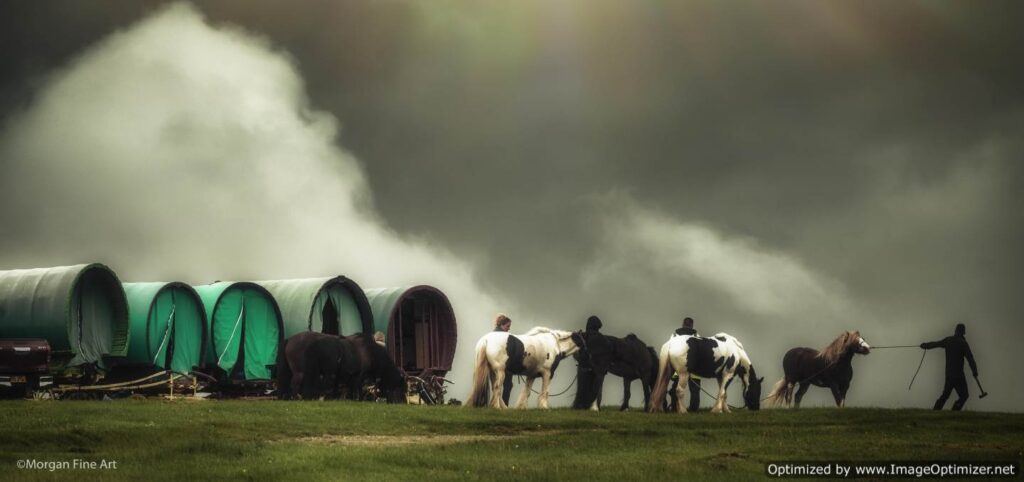
[1] https://www.cwherald.com/news/fears-over-encampments-leading-up-to-appleby-horse-fair/
[2] https://www.dailymail.co.uk/news/article-9880621/Gypsies-arriving-Appleby-Horse-Fair-clash-locals.html
[3] https://barristerblogger.com/2021/05/20/the-evil-of-priti-patels-anti-gypsy-legislation/
[4] https://blogs.lse.ac.uk/socialpolicy/2020/06/29/watch-the-crime-rate-go-up-over-the-weekend-keep-your-doors-and-windows-shut-people/
[5] Ibid. See https://www.basw.co.uk/resources/gypsies-and-travellers


You covered alot and left out some more you can live a lifetime on to roadand sill knot strach the surface of being a Gypsy.
Gypsy is in the blood (travelling all the days of you life and the right to settle whre you choose to rest)
Thanks Philomena, there is so much prejudice about just now, so I am happy to do what I can to explain, but some people just don’t want to listen. I know there is such a lot left out, but it would have ended up like a book if I wrote any more! Thanks for reading it, and if there is anything you think is wrong please let me know.